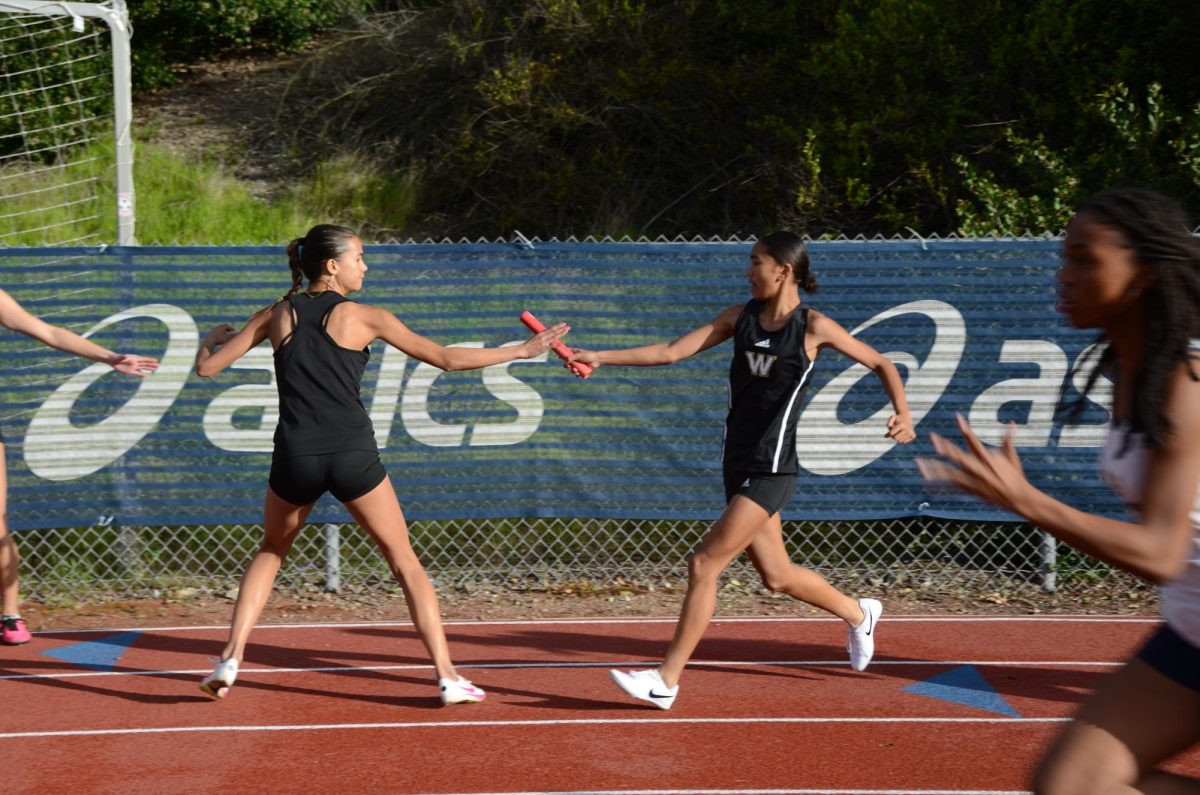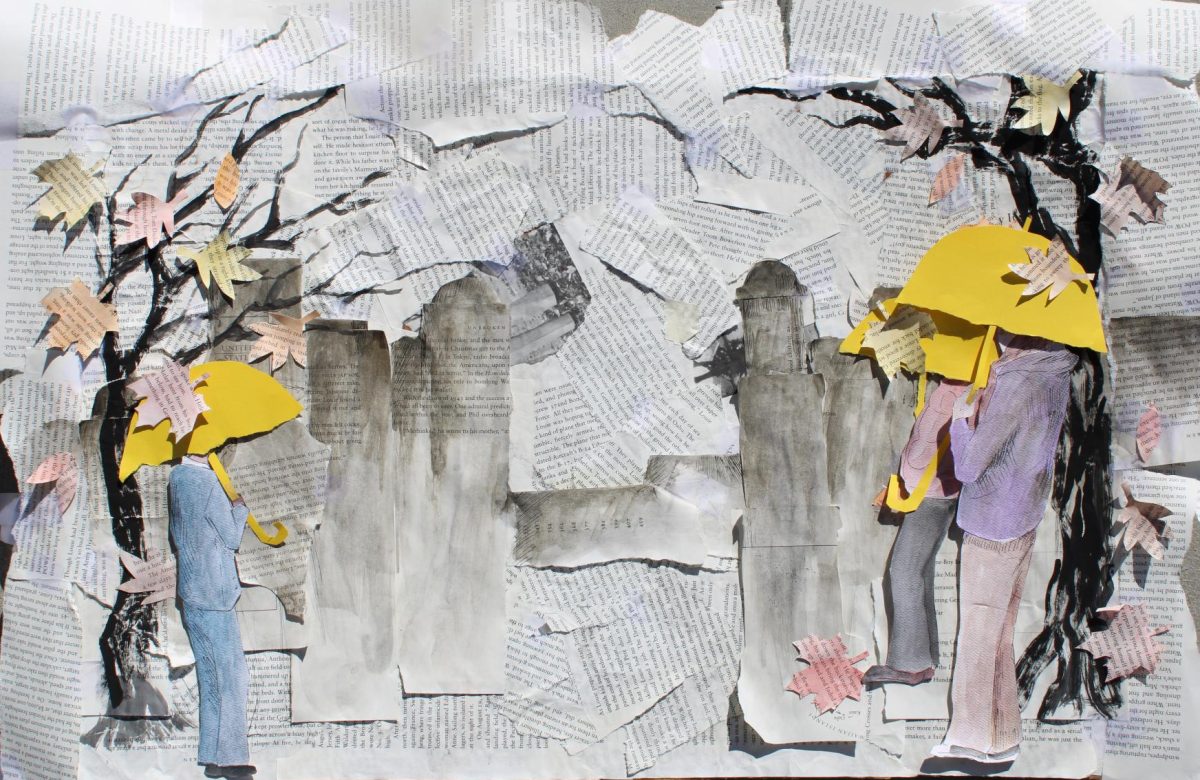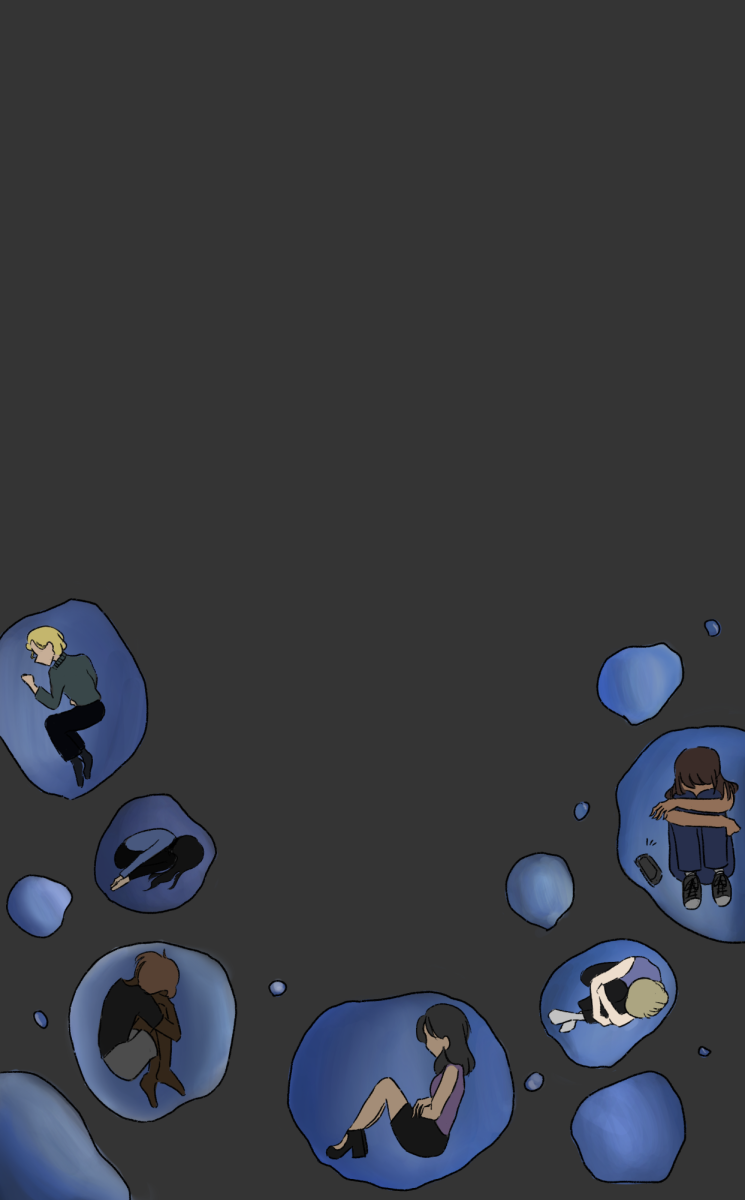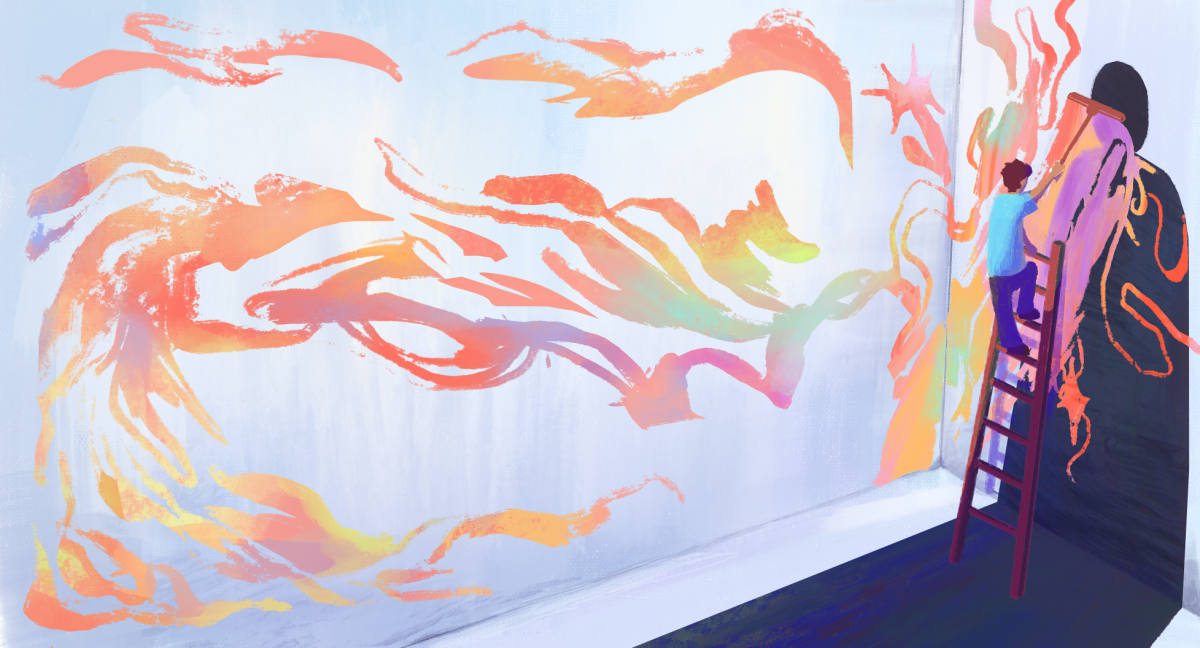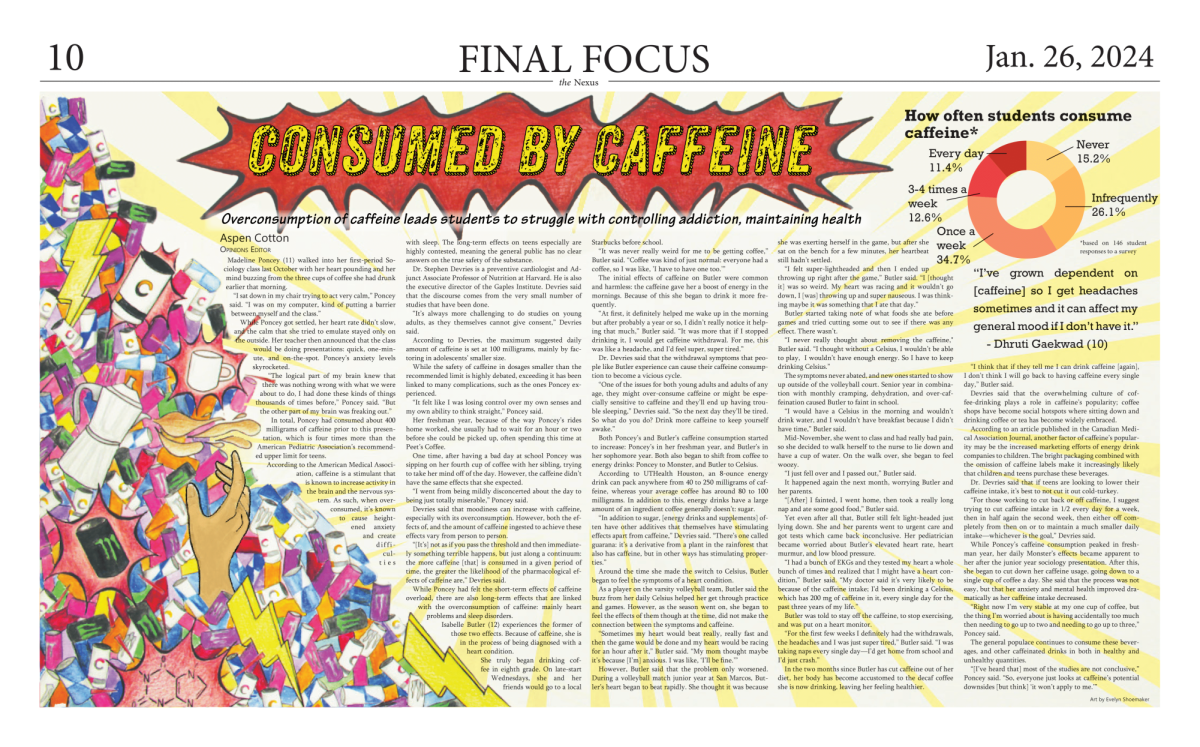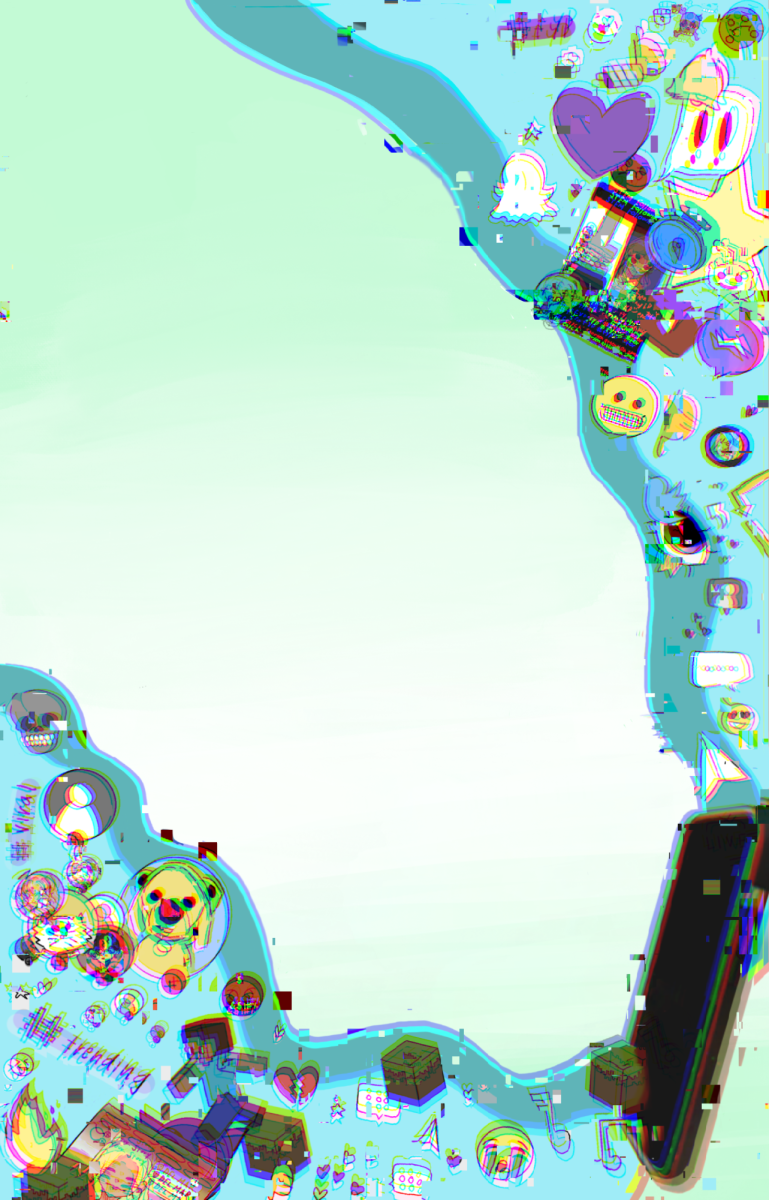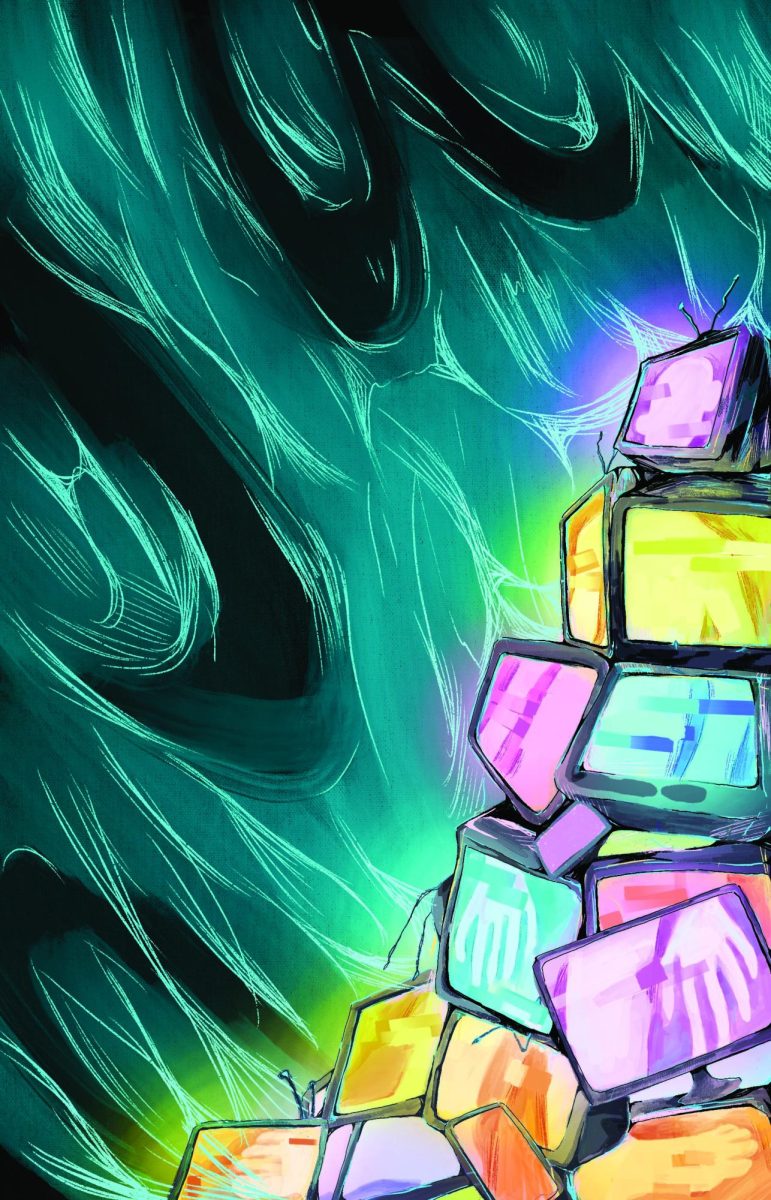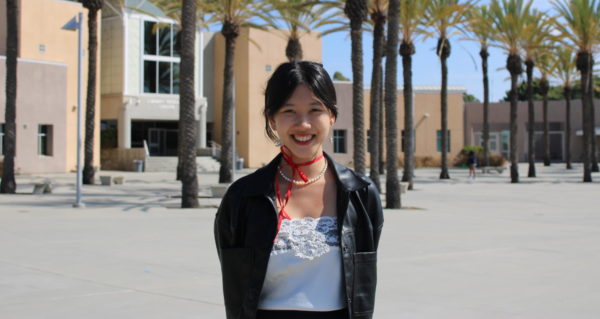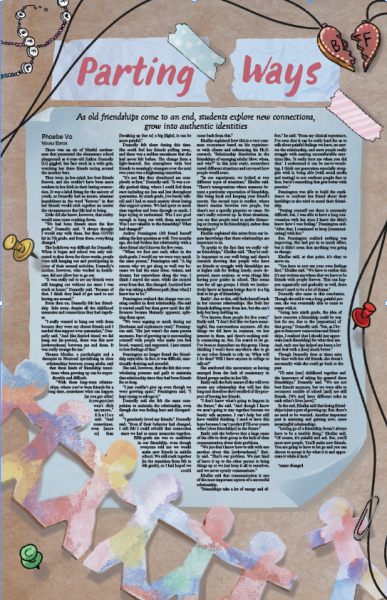
There was an air of blissful carelessness that permeated the elementary school playground as 6-year-old Kailyn Donnelly (11) giggled, her face stuck in a wide grin, watching her three friends racing around the monkey bars.
They were, in her mind, her best friends forever, and she couldn’t have been more resolute in her faith in their lasting connection. It was a label fitting for the naivety of youth, as Donnelly had an innate, adamant hopefulness in the word “forever,” in that her friends would stick together no matter the circumstances that life had to bring.
Little did she know, however, that reality would soon come crashing down.
“We had been friends since the first grade,” Donnelly said. “I always thought I would stay with them. But then COVID hit in 7th grade, and from there, everything changed.”
The lockdown was difficult for Donnelly. When it began and school was only estimated to shut down for three weeks, people were still hanging out and participating in some of their normal activities. Donnelly’s mother, however, who worked in healthcare, did not allow her to go out.
“It was really sad to see my friends were still hanging out without me since I was stuck at home,” Donnelly said. “Because of that, I think they kind of got used to not having me around.”
From then on, Donnelly felt her friendship fade away, despite all the childhood memories and connections they had together.
“I really wanted to hang out with them because they were my closest friends and I needed that support over quarantine,” Donnelly said. “And [the limited times] we did hang out [in-person], there was this new [awkwardness] between me and them. It was really strange for me.”
Thomas Khullar, a psychologist and a therapist in Montreal specializing in close relationships between young adults, said that these kinds of friendship transitions when growing up can be unpredictable and difficult.
“With these long-term relationships, where you’ve been friends for a long time, sometimes what can happen [as you get older] is you guys just won’t click anymore,” Khullar said. “And sometimes, even [more so] than [breaking up due to] a big [fight], it can be more painful.”
Donnelly felt alone during this time. She could feel her friends pulling away, and there was a sudden uneasiness that she had never felt before. The change from a light-hearted, fun atmosphere with best friends to seemingly strangers over the next two years was a frightening transition.
“It’s not like they abandoned me completely at first,” Donnelly said. “It was a really gradual thing, where I could feel them start including me less and less throughout quarantine. By ninth grade, [we barely talked] and I had so much anxiety about losing that support system. We had spent so much time together and been through so much. I kept trying to understand. Was I not good enough to hang out with them anymore? Was I not valuable to the friendship? What had changed?”
Audrey Pennington (10) found herself asking the last question as well. Two months ago, she had broken her relationship with a close friend she’d known for five years.
“When we first met each other in the sixth grade, I would say we were very much the same person,” Pennington said. “A big reason why we got along so well was because we had the same ideas, visions, and dreams, but somewhere along the way, I think I stayed the same, while she strayed away from that. She changed. I noticed how she was taking a different path [than what] I knew her to be.”
Pennington realized this change was creating conflict in their relationship. She said it started small but then grew until the differences became blatantly apparent, splitting them apart.
“We were arguing so much during my [freshman and sophomore year],” Pennington said. “She just wasn’t the same person anymore. Part of growing up is surrounding yourself with people who make you feel loved, wanted, and supported. I just started to lose feelings of that.”
Pennington no longer found the friendship enjoyable. In fact, it was difficult, emotionally draining and stressful.
She said, however, that she felt this overwhelming pressure and guilt to maintain that relationship since they had been friends for so long.
“I just couldn’t give up even though we were growing apart,” Pennington said. “I kept trying to salvage it.”
Donnelly said she felt the same compulsion to maintain the relationship, even though she was feeling hurt and disregarded.
“I genuinely loved my friends,” Donnelly said. “Even if their behavior had changed, I still felt I could rebuild that connection since we had so many memories together. Fifth-grade me was so confident in our friendship, even though everyone told me we would make new friends in middle school. We still stuck together [in the transition from 5th to 6th grade], so I had hoped we could come back from this.”
Khullar explained how this is a very common occurrence based on his experiences with clients and referencing his Ph.D. research, “Relationship dissolution in the friendships of emerging adults: How, when, and why?” In this joint study, researchers tested different situations and surveyed how people would react.
“In our experiment, we looked at two different types of situations,” Khullar said. “There’s transgressions where someone betrays a particular expectation of friendship, like being loyal and keeping your friend’s secrets. The second type is conflict, where there’s tension between two people, but there’s not a specific pinpoint or cause. No one’s really screwed up. In these situations, you see that people tend to prefer distancing or [trying to fix friendships], rather than breaking it.”
Khullar explained this arises from our innate knowledge that these relationships are important to us.
“It speaks to the fact that we really value friendships,” Khullar said. “They’re really important to our well-being and there’s research showing that people who have no friends or struggle with friendships are at higher risk for feeling lonely, more depressed, more anxious, or even things like having poor grades in school. This seems true for all age groups. I think we instinctively know as human beings that it is a big deal to let go of friendship.”
Emily*, due to this, still finds herself stuck in her current relationships. She feels her friends drifting away from her, but she can’t help but keep holding on.
“I’ve known these people for five years,” Emily said. “I don’t feel like we have meaningful, fun conversations anymore. All the things we did have in common, we lost interest in them, and there’s nothing really connecting us. But, I’m scared to let go. I’ve been so dependent on this group. I keep thinking I won’t have anywhere else to go or any other friends to rely on. What will I do then? Will I have anyone in college to talk to?”
She attributed this uncertainty as having emerged from the lack of consistency in friend groups earlier in her life.
Emily said she feels unsure if she will ever create any relationship that will last this long and therefore she’s terrified of the prospect of leaving her friends.
“I don’t know what’s going to happen in the future,” she said. “And though I know we aren’t going to stay together because we barely talk anymore, I can’t help but still have wishful thinking. I need to have this hope because I can’t predict if I’ll ever create other [close friendships] in the future.”
Emily said she believes that a large cause of the rifts in their group is the lack of clear communication about their problems.
“We just don’t know how to talk with one another about this [awkwardness],” Emily said. “That’s our problem. We just kind of leave it up to the other person to bring things up or we just keep it all to ourselves, and we never openly communicate.”
Khullar said that communication is one of the most important aspects of a successful relationship.
“Friendships take a lot of energy and effort,” he said. “From my clinical experience, I’ve seen that it can be really hard for us to talk about painful feelings we have, no matter the relationship, and most people really struggle with naming uncomfortable emotions like, ‘It really hurt me when you did that.’ I understand it can be nerve-wracking. I think our generation especially struggles with it, being able [with social media and texting] to not confront people face to face, but it’s something that gets better with practice.”
Pennington was able to build the confidence to confront her friend about their hardships as she tried to mend their friendship.
“Putting yourself out there is extremely difficult, but, I was able to have a long conversation with her since I knew she didn’t know how I was feeling,” Pennington said. “After that, I continued to keep [communicating] with her.”
But, Pennington realized nothing was improving. She had put in so much effort, but it didn’t seem that anything was going to change.
Khullar said, at that point, it’s okay to move on.
“You have to sort out your own feelings first,” Khullar said. “We have to realize that it’s not written anywhere that we have to be friends with people forever. That can happen organically and gradually as well, there doesn’t need to be a lot of drama.”
Donnelly also came to this conclusion. Though she said it was a long, painful process, she was eventually able to come to terms with it.
“Going into ninth grade, the idea of how concrete a friendship could be was lost for me, due to the [separation] of that group,” Donnelly said. “But, as I began to form new connections and friendships, I realized that I should just appreciate [each friendship] for what they are. And, each one has helped me learn a lot and deal with a [loss] much better.”
Though Donnelly does at times miss her time with her old friends, she doesn’t necessarily wish she could go back to the past.
“I’ll miss [our] childhood together and the innocence of taking for granted those friendships,” Donnelly said. “We are not best friends anymore, but we were able to reconnect outside of school [and] are still friends. [We just] have different roles in each other’s lives [now].”
In the end, Khullar said that losing friendships is just a part of growing up. But, there’s no need to be worried. Another important part is maturing and gaining new, more meaningful relationships.
“Letting go of a friendship doesn’t always have to be a terrible thing,” Khullar said. “Of course, it’s painful and sad. But, you’ll meet new people. You’ll make new friends. You are going to have to let go and you can choose to accept it for what it is and appreciate it while it lasts.”
*name changed


